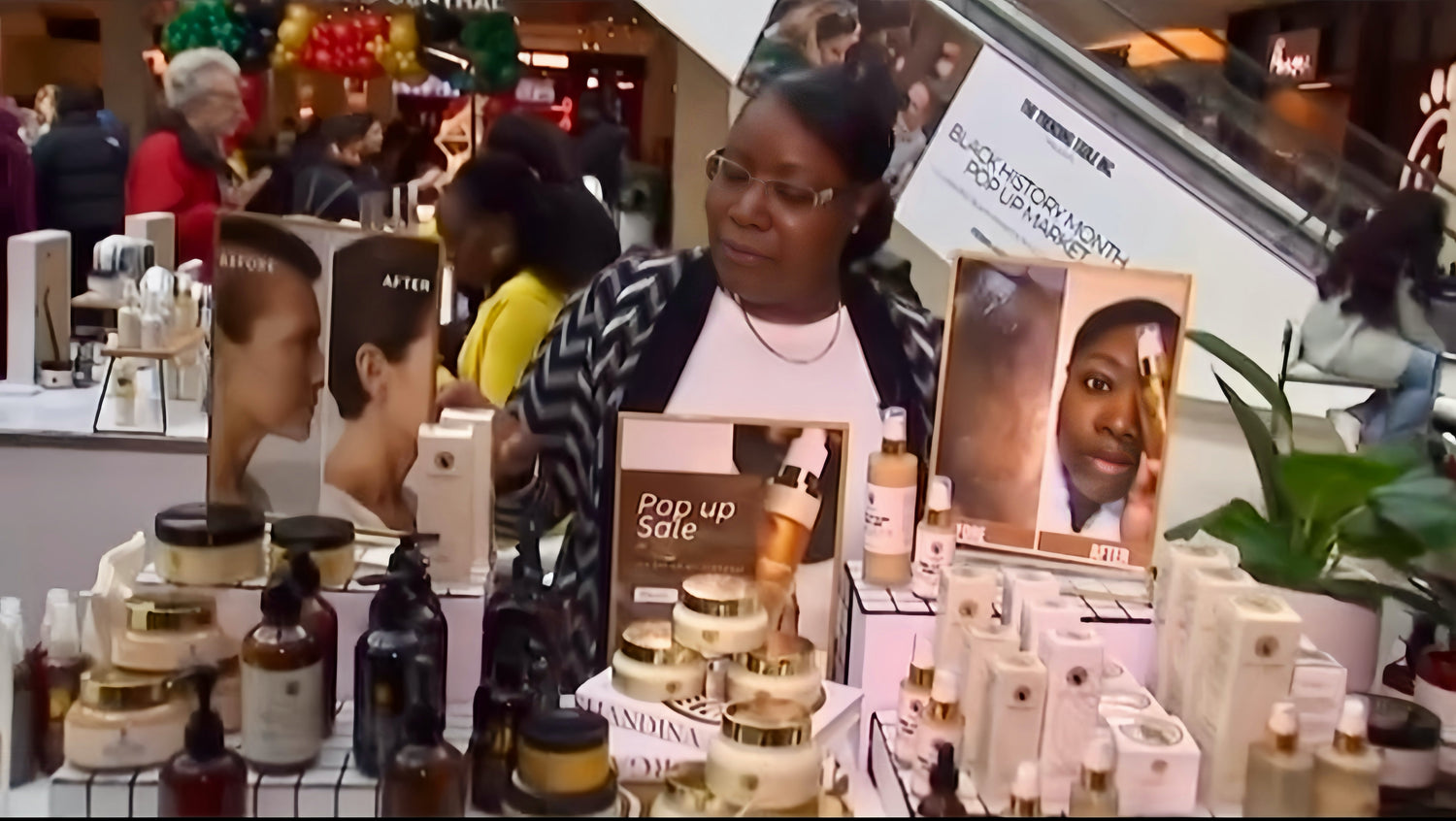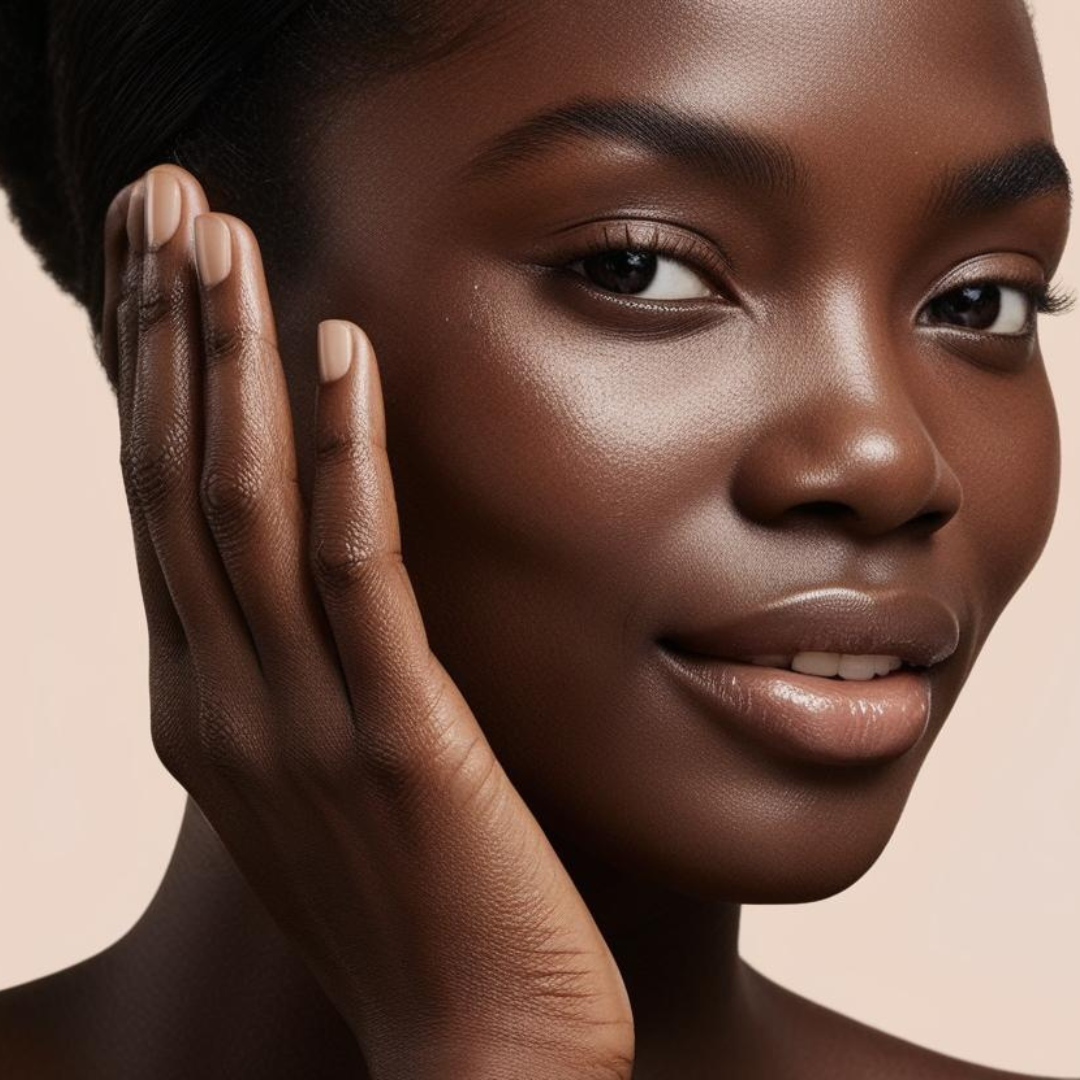Acne is a multifactorial skin condition that primarily develops when hair follicles become clogged with oil and dead skin cells. Several key factors contribute to the formation of acne:
-
Excess Oil Production: The skin naturally produces oil (sebum) to keep it lubricated and protected. However, overproduction of oil, often influenced by hormonal changes during puberty, menstrual cycles, pregnancy, or stress, can lead to clogged pores.
-
Clogged Pores: When dead skin cells and excess oil accumulate in the hair follicles, they form a plug, creating an ideal environment for bacteria to thrive. This plug may appear as whiteheads (closed comedones) or blackheads (open comedones).
-
Bacteria: Propionibacterium acnes, a type of bacteria that normally lives on the skin, can multiply rapidly within clogged pores. This bacterial overgrowth triggers inflammation, leading to the formation of inflammatory acne lesions like papules, pustules, nodules, or cysts.
-
Inflammation: The body's immune response to bacterial overgrowth and trapped debris results in inflammation. This inflammatory response can cause redness, swelling, and pain associated with acne lesions.
-
Hormonal Fluctuations: Hormones such as androgens (male hormones found in both males and females) play a significant role in stimulating oil gland activity. Fluctuations in hormone levels, particularly during adolescence, pregnancy, or while taking certain medications like corticosteroids or oral contraceptives, can exacerbate acne.
-
Genetic Factors: A family history of acne can increase the likelihood of developing the condition, suggesting a genetic predisposition.
To effectively prevent acne, it's important to adopt a comprehensive skincare routine and make lifestyle adjustments:
-
Cleansing: Cleanse your face twice daily with a gentle cleanser to remove excess oil, dirt, and impurities without stripping the skin of its natural moisture.
-
Exfoliation: Regular exfoliation (1-2 times per week) helps to slough off dead skin cells and prevent pores from becoming clogged. Choose a gentle exfoliant suitable for your skin type.
-
Non-comedogenic Products: Use skincare and makeup products labeled as non-comedogenic, meaning they are formulated to not clog pores.
-
Moisturizing: Even if you have oily skin, moisturizing with a lightweight, oil-free moisturizer helps maintain skin hydration without exacerbating acne.
-
Avoiding Irritants: Avoid using harsh skincare products, abrasive scrubs, or picking at acne lesions, as these can worsen inflammation and potentially lead to scarring.
-
Diet and Lifestyle: Eat a balanced diet rich in fruits, vegetables, and whole grains, and minimize consumption of sugary foods and dairy products, which may exacerbate acne for some individuals. Manage stress through relaxation techniques like yoga or meditation, as stress can trigger hormonal fluctuations that contribute to acne.
-
Seeking Professional Advice: If acne persists despite home care efforts or becomes severe, consult a dermatologist. They can recommend prescription medications, such as topical retinoids, antibiotics, or oral contraceptives (for women), to effectively manage acne and prevent scarring.
By understanding the underlying causes of acne and adopting a tailored skincare routine and lifestyle changes, individuals can effectively manage and prevent breakouts, promoting healthier, clearer skin.
Comprehensive skincare regimen for acne-prone skin aimed at clearing and preventing breakouts:

Acne Starter Kit
Morning Routine:
-
Cleanser: Start your day with a gentle cleanser formulated for acne-prone skin. Look for ingredients like salicylic acid or benzoyl peroxide, which help to unclog pores and reduce acne-causing bacteria.
-
Toner: Use a soothing and non-alcoholic toner to balance your skin's pH levels. Look for ingredients like witch hazel or niacinamide, which can help reduce inflammation and redness associated with acne.
-
Treatment (Optional): If you have active breakouts, apply a spot treatment containing benzoyl peroxide or salicylic acid directly to affected areas. Allow it to absorb before proceeding to the next step.
-
Moisturizer: Choose an oil-free, non-comedogenic moisturizer to hydrate your skin without clogging pores. Look for ingredients like hyaluronic acid or glycerin to maintain skin hydration.
-
Sunscreen: Apply a broad-spectrum sunscreen with SPF 30 or higher, even on cloudy days. Look for oil-free or non-comedogenic formulations to avoid exacerbating acne. Sunscreen is essential to protect your skin from UV rays and prevent post-inflammatory hyperpigmentation.

Evening Routine:
-
Double Cleanse: Start with an oil-based cleanser to remove sunscreen, makeup, and excess oil. Follow up with your acne-fighting cleanser to thoroughly cleanse the skin.
-
Exfoliation (1-2 times per week): Use a gentle exfoliant containing salicylic acid or a mild scrub to remove dead skin cells and prevent clogged pores. Avoid aggressive scrubbing, which can irritate acne-prone skin.
-
Toner: Repeat the application of a soothing toner to prepare your skin for subsequent treatments.
-
Treatment: Apply a targeted acne treatment containing ingredients like retinoids, benzoyl peroxide, or azelaic acid. These ingredients help to unclog pores, reduce inflammation, and prevent new breakouts.
-
Serum (Optional): Consider using a serum with ingredients like niacinamide or vitamin C to further address acne scars, hyperpigmentation, or uneven skin tone.
-
Moisturizer: Finish with a lightweight, non-comedogenic moisturizer to lock in moisture and keep your skin hydrated overnight.
Weekly Treatments:
-
Face Mask: Use a clarifying or soothing face mask 1-2 times per week, depending on your skin's needs. Look for masks containing ingredients like clay (e.g., kaolin or bentonite) to draw out impurities or soothing ingredients like aloe vera for calming inflamed skin.
-
Spot Treatment: For stubborn or inflamed breakouts, apply a targeted spot treatment overnight to accelerate healing and reduce redness.
Additional Tips:
-
Hands Off: Avoid touching your face throughout the day to minimize transferring bacteria and oils from your hands to your skin.
-
Hydration and Diet: Drink plenty of water to keep your skin hydrated from within. Maintain a balanced diet rich in fruits, vegetables, and lean proteins, and limit sugary and processed foods that may exacerbate acne.
-
Manage Stress: Practice stress-management techniques such as yoga, meditation, or exercise, as stress can trigger hormonal fluctuations that contribute to acne.
-
Consultation with a Dermatologist: If your acne is severe or persists despite consistent skincare efforts, consult a dermatologist. They can recommend prescription medications or treatments tailored to your specific skin concerns.
Consistency and patience are key when treating acne-prone skin. It may take several weeks to see noticeable improvements, so stick to your skincare regimen and adjust as needed based on your skin's response.



